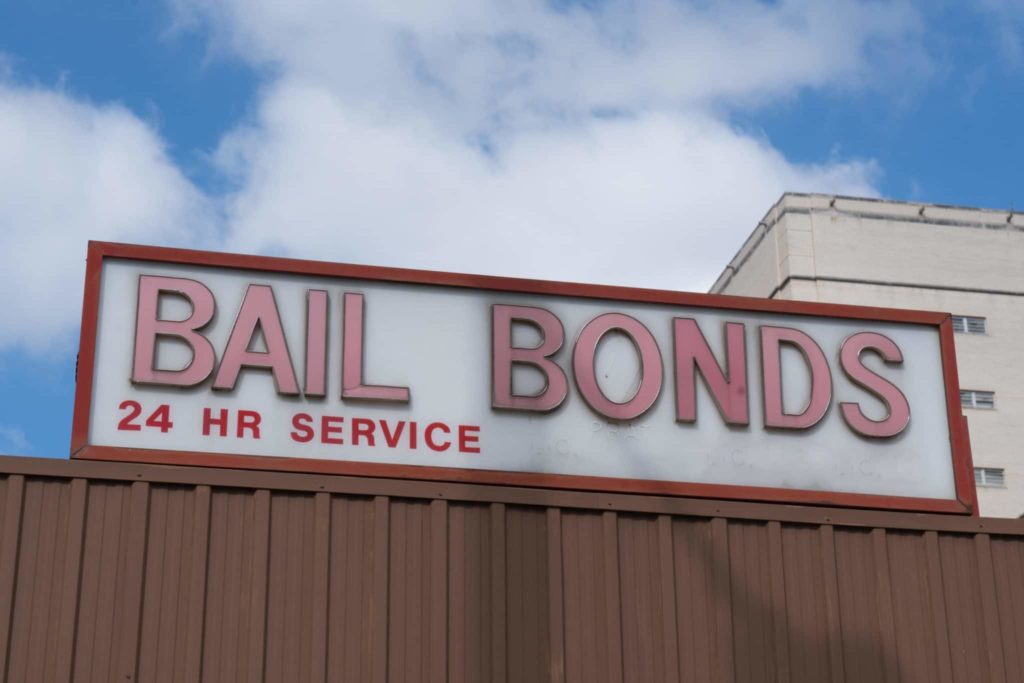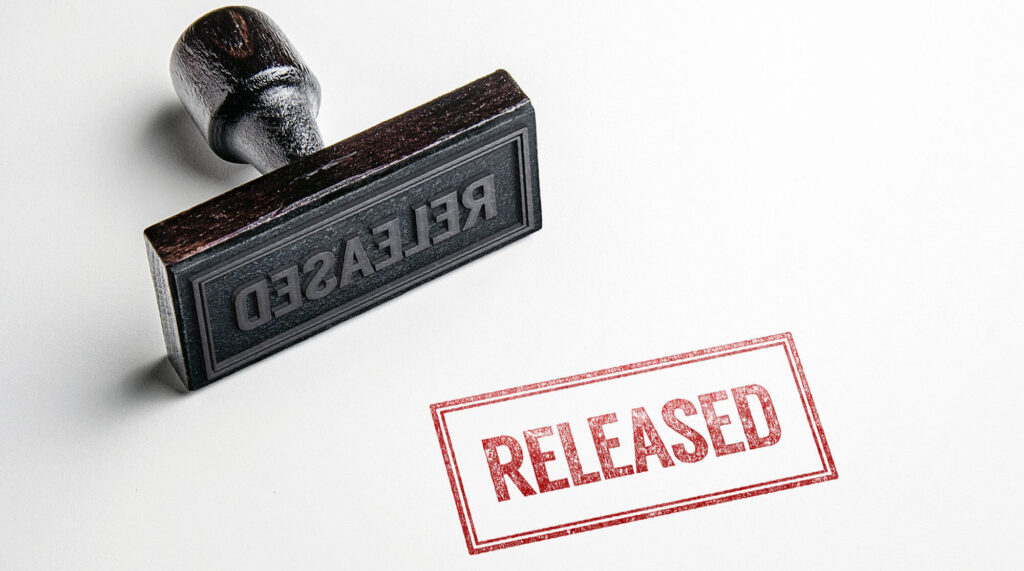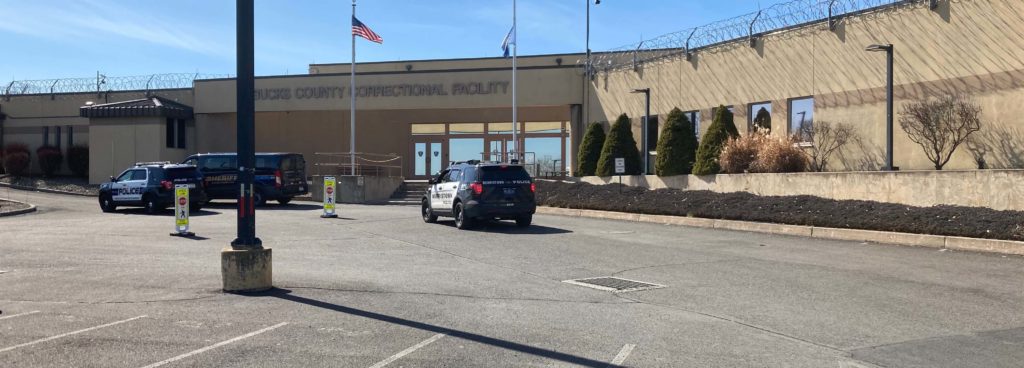
Being placed under arrest without being able to post bail can be a terrifying and highly stressful experience for those facing criminal charges. Unfortunately, persons unable to make bail after arrest will often be forced to endure lengthy pre-trial imprisonment, separation from their families, and loss of family income and employment. To make things worse, many people must undergo pre-trial detention after being falsely accused of a crime. It is crucial to contact a PA bail reduction lawyer if you are in this situation.
Why is it Crucial to Get Released on Bail?
Release from custody on bail is beneficial for the accused for many reasons. Individuals released from custody before trial can actively assist their lawyer and defense investigators in developing a successful defense against pending criminal charges.
Additionally, individuals released on bail are often able to continue working to support their families and maintain other financial obligations. Therefore, it is critical that those charged with a crime be released from jail on bail as quickly as possible.
Bond Attorney
Do you need to bail someone out? As a skilled bail reduction attorney, I have over a decade of experience providing skilled representation to individuals with bail-related matters in Bucks County, Montgomery County, and the nearby Pennsylvania Counties.
Contact me at (215) 752-5282 for a free initial consultation, or fill out the confidential contact form for an immediate response. Appointments are available after business hours and on weekends.
Bail in Pennsylvania
When the police arrest a person for a crime, that individual is entitled to bail unless the penalty for the offense could be life in prison or death. In contrast, the local district court will mail a summons to appear for the preliminary hearing and a criminal complaint to persons facing misdemeanor criminal charges. A magisterial district judge will set bail at the preliminary hearing in these cases.
First Appearance before the Bail Judge
In most cases involving filing felony criminal charges, the police will acquire an arrest warrant and physically take the suspect into custody. Within 24 hours, that individual will be taken before a magisterial district judge who will arraign them on the charges and set bail.
It is important to have a skilled criminal defense attorney at your side to argue for reasonable bail if you are arrested and taken before a judge under these circumstances. In fact, I have extensive experience assisting individuals facing criminal charges, probation violations, or bench warrants with receiving reasonable bail in their cases.
Factors a Judge Will Consider in Setting Bail
- The seriousness of the charges against the accused
- The likelihood that the accused will flee if released on bail
- Does the accused reside at a local address
- Is the accused currently employed
- Does the accused have a criminal history
- Did the accused appear at previous court hearings
What a Bail Lawyer Can Do
I will meet with you and your family members to understand your pending charges, background, and other factors important to the judge who will be setting or reviewing your bail.
Above all, it is critical to have the representation of an attorney experienced in bail matters at your 1st court appearance, whether that is the initial arraignment, preliminary hearing, or bench warrant hearing.
How Much is Bail for Aggravated Assault in Pennsylvania?
A judge’s bail amount for an aggravated assault case will vary. Factors affecting how high or low the bail is will depend on which bail judge hears the case, the alleged behavior of the defendant, and suspected injuries to the victim.
The more severe the alleged injuries, the higher the judge will set the bail. In addition, the alleged use of a weapon or the alleged victim’s status (child, woman, police officer, the elderly) will also result in a high bond.
Furthermore, it is unlikely that any judge would set bail at release on recognizance or unsecured bail when the police arrest a person for aggravated assault. In my experience, the average range of bail for aggravated assault charges is between $5,000 and $25,000.
Contact an Aggravated Assault Attorney for Help Getting Bail
I have successfully gotten a reasonable bail in some of the most challenging cases. Moreover, each case is different, so it is vital to contact me to discuss how to persuade the bail judge to set or reduce your bail to an affordable amount.
How I Protect your Rights at the Initial Bail Hearing
At the bail hearing, the prosecutor and police will often portray the accused in the worst possible light to convince the bail judge to set the bail amount beyond the amount the accused can pay.
I will fight to protect your interests at the bail hearing by ensuring that the bail judge is aware of all the relevant information about your background, character, and ties to the community to support an order of reasonable bail in your case. I have often been able to convince the bail judge to reduce an individual’s bail to a reasonable amount by providing the court with documentation establishing the following:
- The accused has been admitted into a drug and alcohol treatment program
- Verification of alternate address from the complainant
- The accused has verified employment upon release on bail
- The accused is the sole source of income for the family
- The accused has long-standing ties to the community
Bail for a Violation of Probation or Parole
Individuals on probation or parole are often taken into custody on a probation or parole violation detainer without bail based on allegations that they violated the terms of their supervision.
I have developed professional relationships with county probation officers and prosecutors in Bucks County, Montgomery County, and the surrounding Pennsylvania Counties. I can petition the court to request reasonable bail if you are being held without bail on a probation or parole violation detainer.
The Bail Hearing for a Probation or Parole Detainer
The process for receiving a bail review for a probation or parole violation detainer begins with filing a Petition for Bail Modification in the Court of Common Pleas in the county conducting the probation or parole supervision.
I have extensive experience in outlining the most important factors in the petition to convince the bail judge to lift the probation or parole detainer or to set reasonable bail. Depending on the county, the bail hearing may take place in the judge’s chambers or in a courtroom in the presence of the prosecutor, probation officer, and defense counsel.
Negotiating Agreements for Release with the Probation Department
I have frequently been successful at reaching an agreement with the probation officer and prosecutor to remove the detainer or agree to reasonable bail for the alleged probation or parole violator.
Negotiated conditions for release on bail may include an agreement by the individual under supervision to submit to psychological or substance abuse treatment upon release from custody.
Individuals released from jail under these circumstances can often complete their rehabilitation and conclude their time under probation or parole supervision without any further violations. I can review the circumstances of your parole or probation detention to determine if a negotiated agreement may result in your release from custody.
Types of Bail in Pennsylvania
Release on Your Own Recognizance (ROR)
This type of bail is generally ordered in cases involving lower-level criminal offenses. A defendant released on ROR bail is not required to post money or property with the court to be released from custody. However, the defendant is personally responsible for appearing for all required court hearings and abiding by all bail conditions.
Nominal Bail
A defendant released on nominal bail will be required to post a minimal amount of cash (usually $1.00) with the court to be released from custody. In some cases, the bail judge will require that a designated person, organization, or bail agent act as a surety for a defendant released on nominal bail.
What is Unsecured Bail in Pennsylvania?
This type of bail is set by the court at a fixed amount, but the defendant is not required to post any money or any other form of security. Instead, the defendant agrees in writing to be liable for the total amount of the unsecured bail amount if he or she fails to appear for any required court dates or violates any of the conditions of bail.
Percentage Bail
This type of bail requires the defendant or a 3rd party to post a percentage (usually 10%) of the total bail amount with the court. The defendant or his or her family members will generally not need to use the services of a bail bond company if the bail is set on a percentage basis.
Monetary Bond
This type of bail usually requires the involvement of a bail bond company or bail bond agent. A family member or friend will pay a non-refundable percentage (usually 10%) of the defendant’s bail to a bail agent in exchange for the bail agent’s agreement to post the total amount of the defendant’s bond with the court or bail authority.
How do Bail Bonds Work in PA?
The bail agent will act as a surety (guarantor) for the bail amount if the defendant fails to appear for any required court hearings or violates other conditions of the bail.
To secure the guarantee of the bond, a bail bond company will often require that an individual using its services put up some type of collateral, such as a home, vehicle, or other property. Also, co-signors are frequently used by bail bond companies to secure bond services. Bail bond companies are licensed and regulated by the state of Pennsylvania.
Bail bond companies are used frequently in Montgomery County, Philadelphia County, Lehigh County, Delaware County, Northampton County, and many other counties in southeastern Pennsylvania. Moreover, I can recommend a reputable bail bond company if you require their services for your case.
Cash Bail
A judge will order “cash only” bail in cases involving high-risk offenders facing 1st-degree felony or other serious charges. As a result, a Defendant or family member posting cash bail will be required to post the total amount of the bail in cash with the court or bail authority.
In addition, some courts will accept credit card payments or certified checks. The court or bail authority will return the cash bail amount to the defendant or 3rd party surety at the conclusion of the case (usually 30 days after the final court hearing).
Some counties will deduct administrative fees from the posted bail amount before reimbursing the defendant or 3rd party surety.
Bail Reduction
In many cases, an individual is arrested and brought before a bail judge without the assistance of an experienced criminal defense attorney. This situation may arise when a person is arrested by the police after hours and is arraigned by a night court judge.
In most of these circumstances, bail is set far beyond the resources of the defendant and his or her family and friends. A Bail petition must be filed in the Court of Common Pleas in the county where the police file the charges. Fortunately, most county courts promptly schedule a hearing on the bail petition after it is filed with the clerk of courts.
Bail Reduction Hearing Procedures
I have often been able to persuade the bail judge to lower bail after I present relevant information about a defendant’s background to the court at the bail hearing.
Furthermore, a bail judge is more likely to grant reasonable bail if sufficient information about the defendant’s background, character, family ties, employment history, and ties to the community is presented at the bail hearing. I have extensive experience in identifying and developing this type of critical information.
If necessary, I will present supporting affidavits at the hearing to verify background information about the defendant to assure the bail judge that the defendant will not be a bail risk. In some cases, I have presented witnesses to testify regarding the defendant’s positive reputation, family ties, and community support.
In other cases, a bail judge may reduce a defendant’s bail if the defendant is accepted into a substance abuse or psychological treatment program. I can help you if you are being held in custody due to an unreasonable bail amount.
What is a Bail Source Hearing?
In some instances, usually involving drug trafficking charges, the bail judge will add a particular condition to the bail order. As a result, the person posting bond or collateral must establish that the funds or property used to post bail came from a legitimate source. Bail judges refer to this type of bail condition as a “Nebbia Order.”
I have extensive experience challenging the imposition of a bail source condition in all criminal cases. Therefore, I will file a Motion to Lift Bail Source Condition. To prove that the bail funds come from legitimate sources, I will present the following items at the bail source hearing:
- Bank records
- Real estate property records
- Income statements
- Mortgage documents
- Pension statements
- Other financial information
In some cases, it may be necessary for the person posting the funds or collateral to testify in person at the hearing. In addition, I can file a Petition for Modification of Bail once the bail judge lifts the bail source condition. As a result, I have often resolved both the bail source condition and the bail modification at the same hearing.
Release on Nominal Bail under Rule 600
Individuals charged with a crime and unable to post bail are entitled to have their case brought to trial within 180 days under the Pennsylvania Rule of Criminal Procedure 600 (also known as Rule 600).
As a result, defendants in pre-trial incarceration beyond 180 days without a trial are entitled to petition the court for immediate release on nominal bail (usually $1.00).
Pennsylvania lawmakers enacted Pennsylvania Rule 600 to require that the prosecutor bring a citizen to trial in a reasonable amount of time. In addition, the rule prevents the government from detaining an individual indefinitely after the police arrest a person for a crime.
When Does Rule 600 Apply?
Rule 600 does not apply to cases involving defendants facing charges that could result in the death penalty or life in prison. Also, Rule 600 is not applicable in cases where the Defendant’s release on bail would create a safety risk to the community.
Finally, the criminal court judge will not find a Rule 600 violation if the delay in the trial was caused by the defendant or the defendant’s attorney.
Regrettably, many Rule 600 violations occur when court officials fail to schedule an incarcerated defendant’s trial within the 180 days mandated by the rule. Also, most Rule 600 violations occur due to trial continuance requests by the prosecutor or other actions attributable to the prosecutor’s office, causing a delay in the defendant’s right to a speedy trial.
Filing a Motion for Release under Rule 600
In cases where the court or prosecutor has violated Rule 600, the criminal defense lawyer will file a Motion for Nominal Bail and petition the court for the Defendant’s immediate release on nominal bail. At the Rule 600 hearing, the prosecutor bears the burden of proving the defendant was brought to trial within 180 days.
However, if 180 days have passed, the prosecutor must demonstrate that the delay was not their fault. Therefore, I can evaluate your case’s facts and procedural history to determine if you are eligible for immediate release on nominal bail under Rule 600.
Bail Hearing Attorney PA
Are you or a loved one in jail and can’t post bail? Then, you begin to search for the best bond lawyers near me. As an experienced bond lawyer, I handle bail reduction cases in Bucks County, Montgomery County, and the surrounding Pennsylvania Counties.
Phone lines are open 24 hours a day at (215) 752-5282. Call today for a free initial consultation, or fill out the confidential contact form for an immediate response.








